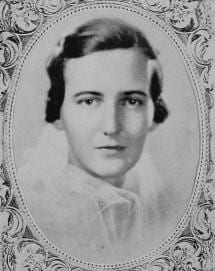Abstract
In this interview, Eleanor Mary Addison begins by considering the difficulties of being a commuter student, not being able to build a community on campus, and the financial strain of living in a dormitory. She recalls participating in choir, correcting math papers, and tutoring, all for money, in order to continue studying at Pembroke College through the Great Depression, and she explains that this was not unusual at the time.
Addison remembers that all of her classes took place on the Pembroke campus and never included male students from Brown University. She notes that Dean Margaret Shove Morriss and Biology professor Magel Wilder were two of the few women faculty members on campus. She briefly discusses completing a year of student teaching while working part-time for Brown University professor Andrew Hamilton MacPhail on a project that would become her master’s thesis. She also mentions the absence of Black students at Pembroke. She recalls participating in bowling, fistball, and archery, and being a member of the Mathematics Club that was integrated with Brown students.
Addison concludes the interview by explaining her various jobs at Brown University, the creation of the School of Applied Science, and the German scientists who worked there after fleeing Nazi occupied Germany.
Recorded on November 29, 1982 in West Andrews Dormitory, Brown University, Providence, RI
Interviewed by Charlotte Erwin
Suggested Chicago style citation: Addison, Eleanor Mary. Interview. By Charlotte Erwin. Pembroke Center Oral History Project, Brown University. November 29, 1982.
Biography
Eleanor Mary Addison was born in Woonsocket, Rhode Island, in 1917. She grew up in Providence and graduated from Classical High School. She earned her A.B. and A.M. in Mathematics from Brown University and worked as an Administrative Assistant in Brown’s Math Department for 41 years. She was the longest continuous member of St. Matthew Church in Cranston, and passed away on October 3, 2005.
